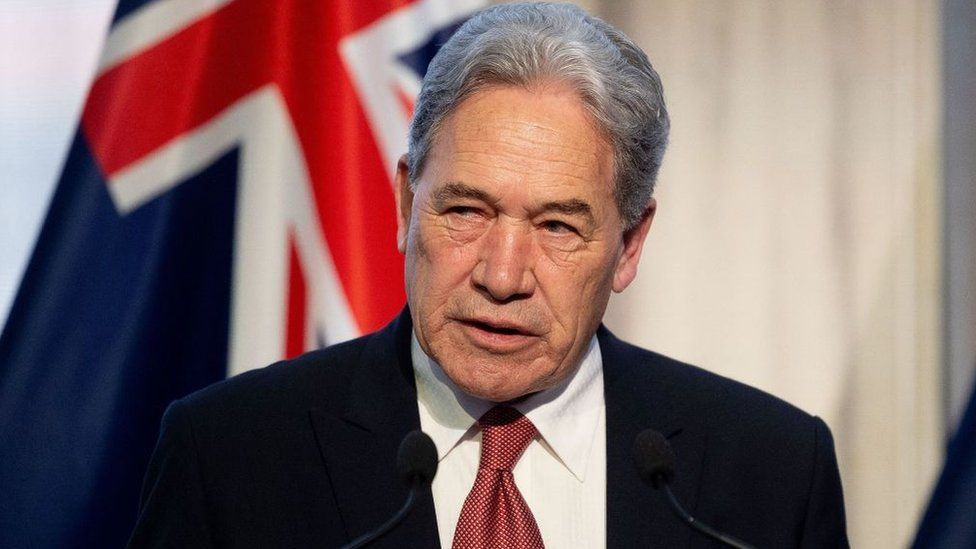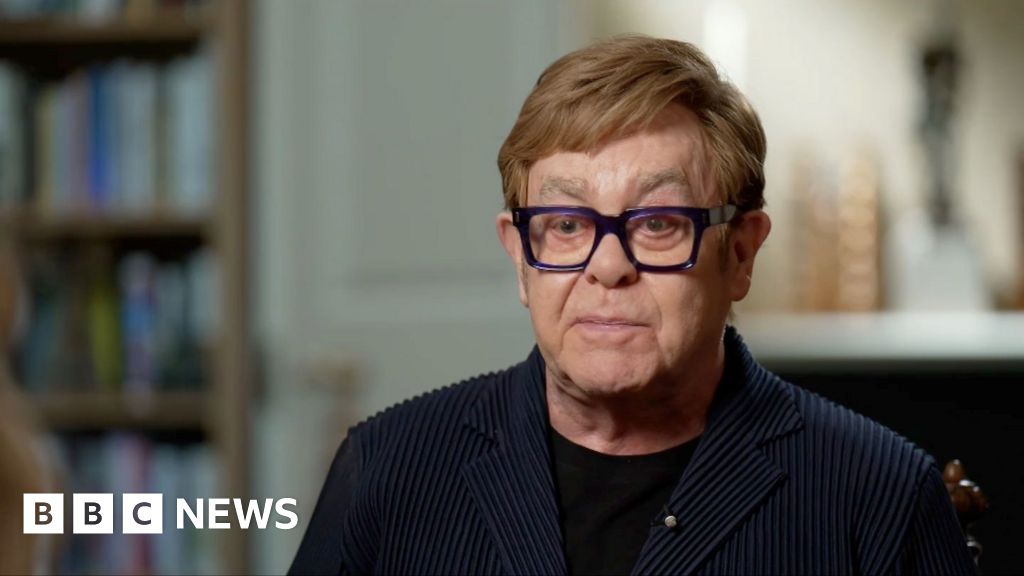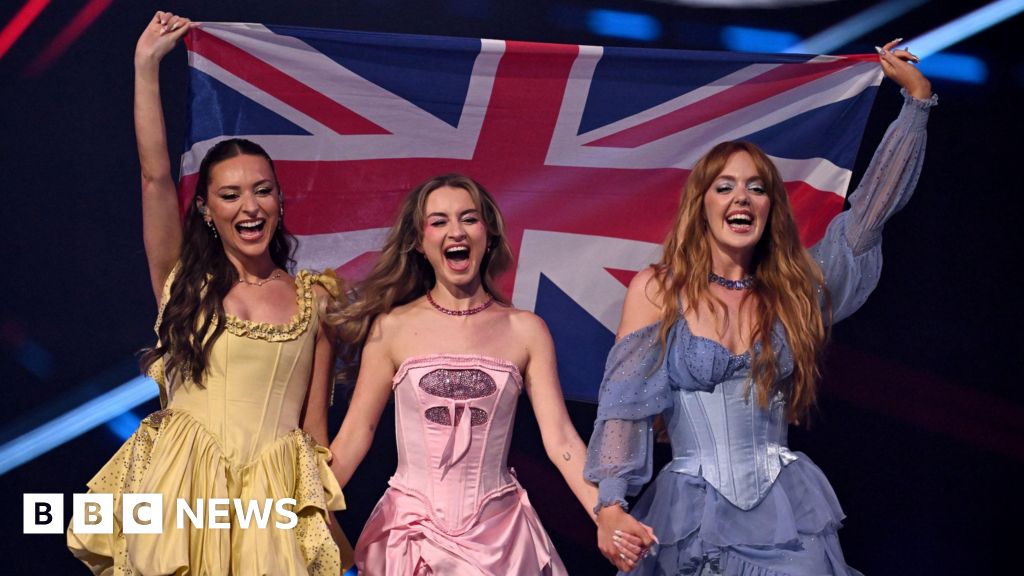ARTICLE AD BOX
 Image source, Getty Images
Image source, Getty Images
By Simon Atkinson
BBC News, Sydney
New Zealand's deputy prime minister Winston Peters says he "does not care" about the row over using Chumbawamba hit Tubthumping at a political rally.
The UK band had accused him of "hijacking" the song and had asked their recording label to issue a "cease and desist" letter.
"It seems the media care more about the Chumbawamba story than we do. We actually don't care," Mr Peters said.
"There's nothing to 'cease or desist'," he wrote on X on Wednesday.
Mr Peters, who leads the right-wing New Zealand First Party that is part of the governing coalition, walked on to stage to Tubthumping ahead of a controversial speech last weekend.
He ended by referring to its famous lyrics, saying: "We got knocked down, but we got up again."
The band protested, saying they did not support his political views and did not want him to use their song during his rallies.
But Mr Peters said on Wednesday, "The song worked like a charm for our first public meeting after the election. The over 700 people in the crowd thought so too."
Though the band released several singles, Mr Peters took aim at Tubthumping being Chumbawamba's biggest commercial success.
"I would use another of their hit song titles as a quip at the end of this post but unfortunately they only had one," he wrote on X.
Chumbawamba's former lead singer and one of it's founding members, Dunstan Bruce, told the BBC's Newshour programme that the song was written about a large mixed and migrant population coming together in Leeds in the UK.
Image source, Getty Images
Image caption,The UK band accused Mr Peters of 'hijacking' the song
"For this guy, Winston Peters, to then try and hijack the song and use it as part of his campaign, where he is expressing political views that I find quite egregious, I just thought that that's not something that we could just sit back and let happen."
Mr Peters has used Tubthumping in previous rallies, and Mr Bruce said the song had been used by others as well in a way that upset the band.
"It's happened quite a few times with the right-wing politicians in the United States, in the UK, in Australia, who've all tried to use the song, and now obviously New Zealand," Mr Bruce said.
He added that they usually respond by sending a "cease and desist" letter to "publicise the fact that our politics do not align with these people on the right".
"They obviously see the song as a populist song... the message of the song is quite universal. It's quite easy for people to misinterpret it or to not know anything about the band who created that song," he said.
The BBC has contacted Sony Music Publishing to ask whether it has made any contact with Mr Peters and New Zealand First - but is yet to receive a reply.
On X, Mr Peters, said, "We will be sure to file the 'cease and desist' letter in a safe place if it ever arrives."
In the hour-long "state of the nation" speech which sparked the controversy, the NZ First leader talked about plans to remove gender and sexuality lessons from the school curriculum and said that NZ First and their supporters have a "real chance to take back our country".
He also appeared to compare shared decision-making between Māori people and the Crown - known as co-governance - to the race-based theories of Nazi Germany. But he later attacked the media for "misreporting" this part of his speech.
New Zealand's prime minister Christopher Luxon has said he had a "private conversation" with Mr Peters over his comments.
Former PM and Labour leader Chris Hipkins accused Mr Peters of "using racism and anti-media rhetoric to divide our country", adding "Kiwis deserve better than a deputy prime minister who behaves like a drunk uncle at a wedding".

 1 year ago
49
1 year ago
49








 English (US) ·
English (US) ·